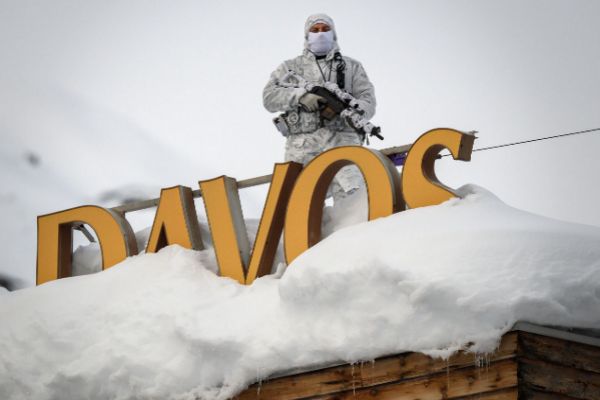The growing tension between political parties and the tendency towards extremism has become the biggest risk of the year along with trade wars and superior in the short term even to climate change, according to the latest World Economic Forum report that will be debated in Davos. next week.
The study on Global Risks presented today by the president of the Forum, Borge Bende , predicts that "economic and political polarization will increase this year" and argues that "collaboration between world leaders, companies and policy makers is more necessary than ever to stop the serious threats to our climate , environment, public health and technological systems. " It does not mention specific countries, but the current political situation in Spain is no exception and fits the conclusions of the report that points to the danger of "lack of ammunition of the countries to combat a future recession" due to the lack of understanding among their political class .
Bende says there is "a synchronized global economic slowdown" and that countries' time is shortened to meet the great challenges of the fourth industrial revolution. "The G20 economies reach record levels of debt with relatively low levels of growth . " In his opinion, "a long period of low growth is possible, similar to that of the 1970s, if the lack of coordination continues."
At a time when the objective would be to work together for the great threat of the decade such as climate change, "nationalist recipes" and unilateralism extend.
The report is the result of a survey of more than 750 experts and decision makers worldwide to classify their biggest concerns in terms of probability and impact, and 78% said they expect "economic confrontations" and "internal political polarization" increase in 2020.
The study considers it "catastrophic to address urgent challenges such as the climate crisis, the loss of biodiversity and the record decline in species." The report, prepared in collaboration with Marsh & McLennan and Zurich Insurance Group, recalls the danger to the insurance sector that is not covering potential damages worth $ 280 billion. It also warns of the risks for private pension funds that have invested money in the energy sector.
"The political landscape is polarized, the sea level is rising and climatic fires are spreading . This is the year that world leaders must work with all sectors of society to restore and revitalize our cooperation systems, not just to get short-term benefits, but to address our underlying risks, "said Borge Brende. He warned that the delay ends by limiting decisions to" reorganize the sunbeds of the Titanic. "
Peter Giger, Group Risk Director, Zurich Insurance Group, warned of the urgent need to adapt more quickly to avoid worse and irreversible impacts of climate change and to do more to protect the planet's biodiversity: "Biologically diverse ecosystems capture huge amounts of carbon and provide massive economic benefits that are estimated at $ 33 trillion a year, the equivalent of the GDP of the US and China together . "
According to the study, " the low trade barriers, budgetary prudence and strong investment that were considered fundamental for growth now weaken before nationalist policies . " And the problem is that central banks are no longer so decisive. "There is less and less room for maneuver in budgetary and monetary policies, lower than in 2008, generating uncertainty about how countercyclical policies will work."
About 50 heads of state and government have confirmed their attendance at the Davos Forum next week. Among them the president of the United States, Donald Trump, the German chancellor, Angela Merkel and the prime ministers of Italy, Guiseppe Conte, and of Spain, Pedro Sánchez. In the Spanish delegation the usual presidents of the Santander Bank, Ana Botín, BBVA, Carlos Torres, Iberdrola, Ignacio Sánchez Galán and Ferrovial, Rafael del Pino participate, to which the president of Acciona is increasingly added, José Manuel Entrecanales, of Naturgy, Francisco Reynés and the CEO of Repsol, Josu Jon Imaz.
For its part, Greenpeace said in a statement that the Davos Forum should not limit itself to highlighting the seriousness of the climate challenge . "The bankers who will land in Davos on their private plane have earned billions of dollars investing in devastating hydrocarbons for the planet. " .
The president of the giant Blackrock fund, Larry Fink, has announced before moving to the Swiss town that it will reduce investment in companies still linked to coal.
According to the criteria of The Trust Project
Know more
